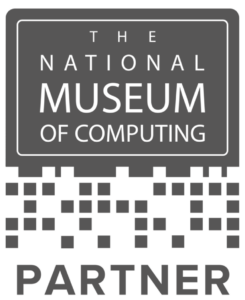What can an 18-year old in a shed teach ITSM leaders and teams about continual learning and CSI?
Last summer, my 18 year-old son James taught himself not just to use a wood turning lathe but to make a goblet with an ‘impossible ring’. This is the neck of the goblet with the ring carved out of that same piece of wood. You can see that it is too small to pass over either the foot or the bowl of the goblet. He did this in 3 days, having only used a lathe once before.
This is not a proud mum story, (though of course I am!) but an analysis of learning processes – and what IT leaders and teams can learn from an 18 year old in a shed.
If you look closely at the wood you will see that it is still rough and unfinished. But what struck me was his:
- Level of energy, focus, drive and tenacity devoted to the task
- Engagement and commitment
- Creativity
- Incredible speed of the ‘plan-do-check-act’ learning loop
- Problem solving – learning from mistakes
- Self-motivation and enjoyment
- Fearlessness, learning a very technical skill
What would most managers give to have a team working and learning like this!
He was definitely in the ‘flow’, as Mihalyi Csikszentmihalyi calls it. In that mental, physical and emotional state where you are so absorbed in a task that you forget to eat, or to do A-Level revision!
While in IT, we have many individuals working in the flow, our shared or team flow experiences are less common. These are the focus on many team building, L&D and culture change programmes. Collective flow and group work-learning looks, to many managers, like ‘chatting’. I’ve even been in offices where people are forbidden to talk in between customer interactions. Stuck thinking!
An excellent example of team flow and on-the-job learning was a study of a team of photocopier engineers by Julian Orr, back in 1996. The engineers had a central base where they met and ‘chatted’ in between jobs. The conversations were very technical and extremely valuable. They led to increased banks of experience, faster problem solving, spotting trends and recurring issues, lateral thinking, quicker routes to fixes, customer service and relationship management. However these conversations also had a social function – bonding, sense of belonging, recognition from respected peers, team support and increased confidence. A community of practice in other words. Managers who limit this type of ‘chatting’ damage performance, motivation, retention and customer service.
Finding the learning-work balance
Not all the work we do can be exciting and creative. There is operational, repetitive work to be done to run an organisation. Lots of it. However this all got me thinking how IT leaders can create a balance and find opportunities for team ‘flow’, for motivation, engagement and performance improvement. Also, there are different levels of experience and skill in every team. One person’s boring repetitive job is another person’s new challenge. And if you prefer to have the experienced person doing that job every time, beware. He/she may well leave!
James saw no disconnect between the learning and the doing. They were part of the same experience. He did consider going on a wood turning course but he would have had to wait 3 months, joined the ‘beginners’ group, and his fellow learners would have mostly been retired people. Not to mention paying for the course and attending on set dates that clashed with his revision timetable. It is doubtful whether he would have got to the ‘impossible ring’ level of competence within a year.
Each generation (There are now 5 in the workplace) has its learning style preferences. James is part of ‘Generation ‘Z’ who are extremely self-motivated learners and problem solvers. He started by ‘Googling’ the knowledge he wanted, then moved to trial and error, then back to the Internet, then back to the shed for more trial and error. He found YouTube clips, lathe manufacturers’ guidelines and tips, and other enthusiasts’ generously shared experiences in blogs and pictures. He also shared his own experiences.
Traditional training is often seen as separate from ‘real work’: set content, standard for all participants. E-learning and webinars have removed the set time/place constraint but lost the critical component of learning: human interaction, sharing experiences and the creation of new social networks and business relationships.
Suggestions for creating flow and work-learning
- Talk to your people, what do they want to learn? How? When? Let them drive
- Make sure there are enough forums in your team’s weekly and monthly schedule for knowledge exchange. You are not ‘too busy’. That’s more stuck thinking
- Introduce ‘skills swapping’ – you learn a great deal by coaching others
- Get people together who see each other as ‘part of the problem’. They will soon think of each other as part of the solution
- Think about Internet and social media resources. Organisations like FUSE provide the latest in learning technology and organisational knowledge management platforms
- Bring in external trainers, coaches, facilitators and consultants but be sure they are using the latest thinking – experiential learning, connected as closely as possible to the job, immersive learning experiences, simulations and action learning. They should leave you with some of the techniques they use so you can do some of your own coaching and facilitation
- There are many resources and tools to choose from, some of which cost nothing and generate interest and job enrichment. Classroom activities? Books? E-learning? Coaching? Facilitated events? Mentoring? Simulations? Job sharing? Shadowing? Simulations? Master classes? TED lectures? Blogs? Social media? They all have something to offer.
Feel free to get in touch. I’m always delighted to chat and explore ideas.
Philippa
www.openlimits.com
[email protected]
+44 (0)7786 154530/1202 473782
References
- Mihalyi Csikszentmihalyi (2002) – Flow, The Psychology of Happiness
- Mihalyi Csikszentmihalyi (2004) – Good Business, Leadership, Flow and the Making of Meaning
- Philippa Hale (2004) – Bridging strategies and cross-team collaboration between ‘IT Teams’
- Philippa Hale and Jean Gamester (2015) – The 7 Threads of Service Leadership (published in Service Talk, July 2015)
- Julian Orr (1996) – Talking About Machines, an Ethnography of a Modern Job

Philippa Hale
Philippa Hale is the Director & Senior Consultant/Contractor at Open Limits, Associate Faculty member at Henley Business School and Non-Executive Director of ABE UK. English, French, Italian and Portuguese speaking. Her 25 year career has included: theatre, marketing, communications, L&D, OD, IT, intercultural working, project and programme management, entrepreneurship and leadership of change.
Philipps is passionate about learning - social learning, discovery learning, leadership team learning and creating an organisational culture of learning.


